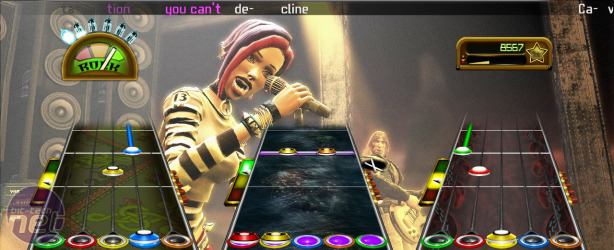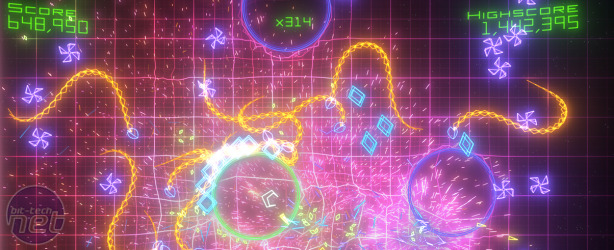
How To Win At Games
[Editors Note: Edward recently wowed us with an insane high-score in our Chase Goose competition. Afterwards, he volunteered to explain the secret of his success.]Everyone knows him; the friend who obliterates the high score you were so proud of and then says they've done better at home. His is the name that fills every spot of the high score table on your favourite arcade machine. He’s the guy who can finish that Dragonforce song on expert.
Some people seem hard-wired to play games and watching them play can be mesmerizing. They aren’t just better – they appear to play so effortlessly, without thinking. What is it about these people that makes them capable of such feats? To understand what’s going on you first need a basic understanding of gaming psychology.
The mind is divided into two thought processes – the conscious and the subconscious. The conscious makes up around 10 per cent of our brains. It is capable of powerful reasoning, but can only handle one or two tasks and remember things for about 20 seconds. The subconscious makes up the other 90 per cent. It houses the long-term memory and is 12 million times more powerful than the conscious.
When you do something unfamiliar, you consciously think through all the steps involved. As you repeat the task, your subconscious connects all the individual actions, stringing them together into a single action you can recall without conscious focus. Remind you of your first driving lesson? Your instructor talked you through everything step by step. Over time your hands and feet learned to take care of themselves while you concentrated on the traffic and which route to take.
There is a three stage process by which we learn to do pretty much anything. Discovery – learning something new. Repetition – developing autonomous recall of this new technique. Sophistication – incorporating several techniques into one more complex technique. The more you can compound this process, the easier everything becomes.
Everyone can learn, but the best time to learn anything is when you are young. Your brain is at its most malleable during the first 10 years and the connections you build during this time will be the strongest you ever naturally form. I picked up several abilities as a kid that contributed to my prowess at certain games, for example. Where? Dance college and music school.
Working with music gave me a great sense of rhythm. Sight-reading endless sheet music gave me a kind of mental first-in first-out buffer for symbolic notation. Learning dance routines and pieces of music taught me how to learn long linear sequences of pretty much anything. There are also physical aspects to this childhood training; my fingers still benefit from the years of stretching and daily exercising, making them freakishly fast and enduring.
Some of the games these skills can be applied to are obvious – Guitar Hero and DDR, for example - but I’m also very good at light gun games. The awareness I have of my physical stance allows me to shift my aim very accurately and my FIFO buffer allows me to queue these slight movements for optimum speed. On-rails shooters like House of the Dead benefit from memorizing attacks sequences just like I memorized dance routines.
No-one ever anticipated the abilities I learned being applied to computer games two decades later. The endless practicing and rehearsing was a resented chore at the time. Like any other kid, I preferred to play on the family Commodore 64. I guess if you want your kids to be good at computer games later in life, make them do other things as well - whether they want to or not.

MSI MPG Velox 100R Chassis Review
October 14 2021 | 15:04











Want to comment? Please log in.